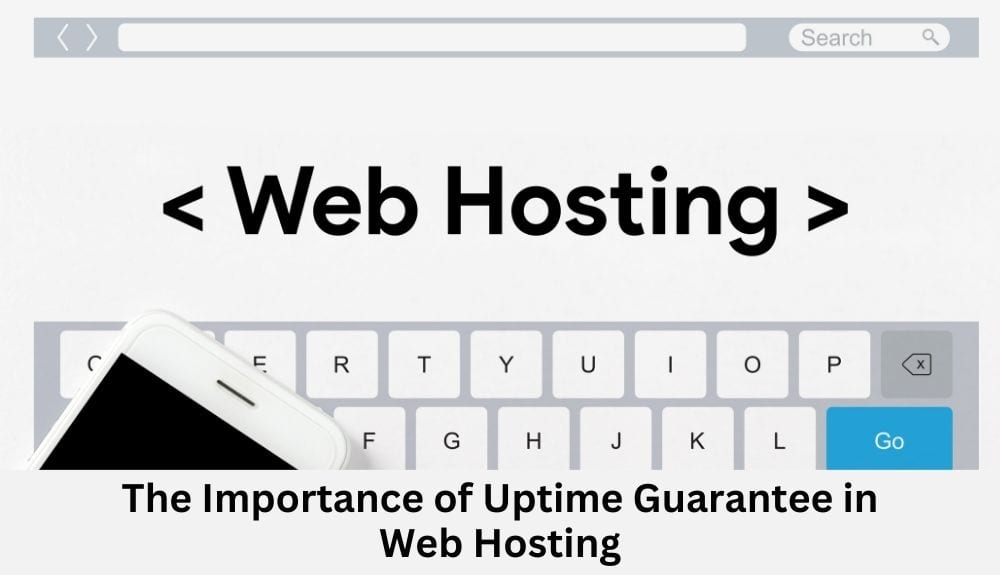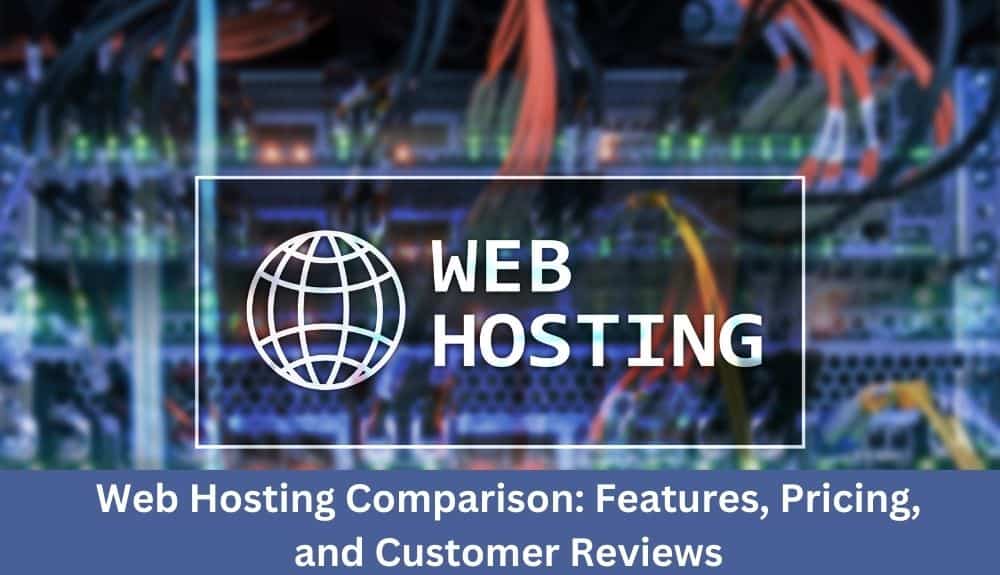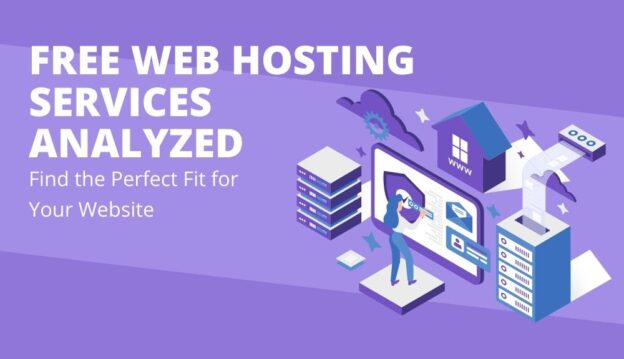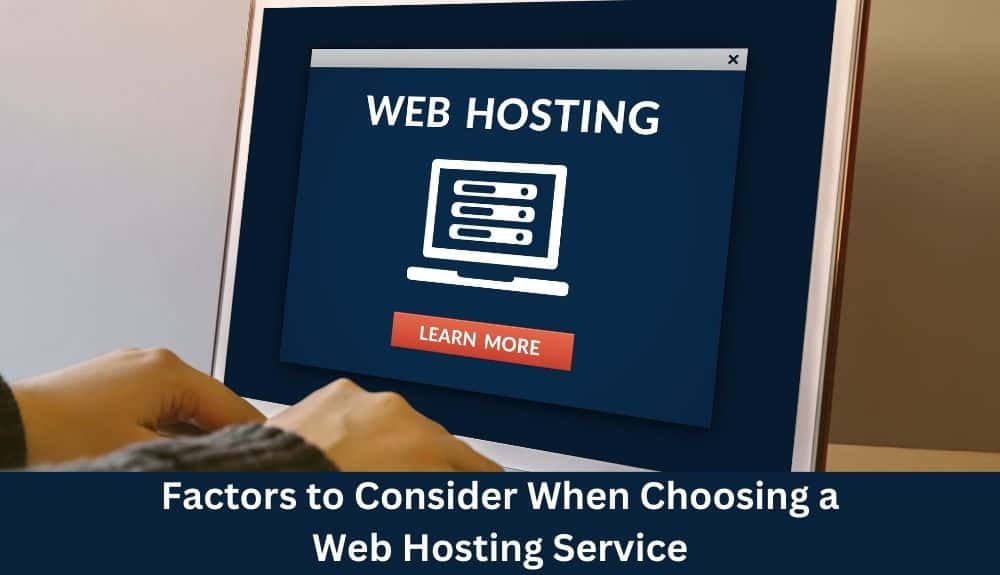Are you tired of the limitations and hidden truths of shared web hosting services? Do you feel like you’re not getting the value and performance you deserve? It’s time to uncover the unspoken truths and expose the real deal behind shared web hosting. In this informative blog, we will take a deep dive into the world of shared web hosting services and reveal the secrets that many providers won’t tell you.
Here’s what you can expect to learn:
1. The pros and cons of shared web hosting: We’ll explore the advantages and disadvantages of opting for shared hosting, weighing the cost-effectiveness against the potential performance drawbacks.
2. Performance and reliability concerns: Shared hosting can have an impact on the speed and uptime of your website. We’ll discuss the factors that influence performance and how to mitigate the risks.
3. Security risks and vulnerabilities: With multiple websites sharing the same server resources, security becomes a major concern. We’ll uncover the security risks associated with shared hosting and provide tips to keep your data safe.
4. Scalability and limitations: As your website grows, you may encounter scalability issues with shared hosting. We’ll outline the limitations of shared hosting and discuss alternative options for future-proofing your website.
1. The Basics of Shared Web Hosting
In the world of web hosting, there are various options available to website owners. One of the most popular choices, especially for small businesses or those on a tight budget, is shared web hosting. So, what exactly is shared web hosting and how does it work?
Shared web hosting involves numerous websites sharing server resources, including disk space, bandwidth, and memory, on a single server. It’s like living in an apartment building, where multiple tenants share the same resources and facilities. In this case, the server acts as the building and each website as a tenant.
Benefits of Shared Web Hosting
Shared web hosting provides several advantages, making it a favorable choice for many website owners. Here are some key benefits:
1. Cost-effectiveness: Shared hosting plans are generally more affordable since the cost of server resources is divided among multiple users.
2. Ease of use: Shared web hosting is designed to be user-friendly, even for those with limited technical expertise. The hosting provider takes care of server maintenance, updates, and security, allowing website owners to focus on their content.
3. Customer support: Most reputable shared hosting providers offer reliable customer support, often available 24/7. This ensures assistance is readily available in case of any technical issues or inquiries.
4. Control panel: Shared hosting plans usually include a control panel, such as cPanel or Plesk, which simplifies website management tasks like file uploads, domain management, and email configuration.
5. Uptime guarantee: Shared hosting providers often offer an uptime guarantee, ensuring that your website remains accessible to visitors for the majority of the time.
6. Additional benefits: Some shared hosting plans come with added perks, such as a free domain name, unlimited email accounts, free SSL certificates for secure online transactions, and the ability to host multiple websites under a single plan.
Drawbacks of Shared Web Hosting
While shared web hosting has its advantages, there are a few drawbacks to consider:
1. Limited resources: Since multiple websites share the same server resources, there is a possibility of resource contention. If one website experiences a sudden surge in traffic, it could impact the performance of other websites on the same server.
2. Security vulnerabilities: Shared hosting environments may be more susceptible to security breaches, as the activities of one website can potentially affect others on the same server.
2. Pros and Cons of Shared Web Hosting Services
Shared web hosting services have gained immense popularity among small businesses and website owners due to their affordability and ease of use. However, it is important to understand the pros and cons associated with this type of hosting plan before making a decision for your business. In this section, we will explore the advantages and disadvantages of shared web hosting services.
Benefits of Shared Web Hosting:
1. Cost-Effective: Shared hosting plans are often the most budget-friendly option available. With multiple websites sharing the same server resources, the costs are distributed among the users, making it an affordable choice, especially for businesses on a tight budget.
2. Ease of Use: Shared hosting providers typically offer user-friendly control panels that make managing your website a breeze. These intuitive interfaces allow you to easily configure settings, install applications, and manage your email accounts without requiring advanced technical knowledge.
3. Customer Support: Shared web hosting providers usually offer reliable customer support to assist you with any technical issues or questions that may arise. Whether it’s through live chat, email, or phone, their dedicated support teams are there to ensure that your website continues to run smoothly.
4. Wide Range of Features: Shared hosting plans often come bundled with a variety of features that cater to the needs of small businesses. These may include free domain registration, unlimited email accounts, and even a free SSL certificate to enhance the security of your website.
Drawbacks of Shared Web Hosting:
1. Limited Resources: Since multiple websites are hosted on the same server, resources such as CPU usage, memory, and bandwidth are shared among the users. During peak traffic periods, this can potentially result in slower loading times and performance issues.
2. Security Risks: Sharing a server with other websites means that if one site on the server is compromised, there is a possibility that the security of your site may also be compromised. However, reputable shared hosting providers implement various security measures to mitigate these risks.
3. Limited Customization: In a shared hosting environment, you have limited control over server configurations and software installations. This can be a drawback if you have specific requirements or rely on complex applications that may not be supported.
4. Uptime Guarantee: While shared hosting providers often offer uptime guarantees, there is a higher chance of server downtime compared to dedicated hosting plans. Since the server resources are shared, a sudden spike in traffic or a malfunctioning website on the same server can affect the overall performance of your site.
3. Security Risks and Vulnerabilities of Shared Web Hosting
When it comes to shared web hosting services, there are some unspoken truths that every website owner should be aware of. While shared hosting plans are a popular choice for small businesses or those on a tight budget, understanding the security risks and vulnerabilities associated with this type of hosting is crucial.
1. Increased Risk of Data Breaches:
With shared hosting, your website shares server resources with multiple other websites. This means that if one website on the server experiences a security breach, it can potentially impact the security of all other websites on the same server. Your website’s security is only as strong as the weakest website on the shared server.
2. Lack of Control over Server Settings:
In a shared hosting environment, you have limited control over server settings and configurations. You’re at the mercy of the hosting provider’s security measures and protocols. This lack of control can leave your website more vulnerable to various security threats.
3. Weaknesses in Other Websites:
Since you’re sharing server resources with other websites, the security of your site is also dependent on the security practices of other website owners. If one website on the server becomes compromised due to faulty security measures, it can potentially open the door for attackers to gain unauthorized access to your website as well.
4. Limited Customization Options:
Shared hosting plans often come with pre-configured settings and limited customization options. While this can make it easier for beginners to set up their websites, it also means that you may be restricted in implementing additional security measures or customizing your server to enhance security.
5. Performance and Downtime Concerns:
If one website on the shared server experiences a sudden surge in traffic or uses excessive server resources, it can adversely affect the performance and uptime of all other websites on the server. This can leave your website vulnerable to downtime, impacting user experience and potentially harming your website’s rankings in search engines.
💡 key Takeaway: Shared web hosting services come with inherent security risks and vulnerabilities due to sharing server resources with other websites. It’s important to understand these risks and take necessary precautions to protect your website and data.
4. The Impact of Shared Web Hosting on Website Performance
As a website owner, it’s important to understand how the choice of web hosting can affect the performance of your website. Shared web hosting has become a popular choice for small businesses and individuals on a tight budget. It offers an affordable hosting solution by allowing multiple websites to share server resources. However, it’s crucial to consider the potential impact on website performance before opting for a shared hosting plan.
1. Limited Resources:
Shared hosting means that multiple websites are hosted on the same server and therefore share the available resources, such as CPU, RAM, and storage. This can lead to limitations in terms of the amount of resources allocated to your website. During periods of high traffic or resource-intensive activities, your site’s performance may be affected as it competes for resources with other websites sharing the same server (web host).
2. Uptime and Server Response Time:
One of the key factors in determining website performance is uptime, which refers to the amount of time your website is accessible to visitors. Shared hosting providers often guarantee a certain level of uptime, but it’s important to note that it may vary depending on the number of websites sharing the server resources. Additionally, server response time, or the time it takes for the server to respond to a request, can be slower in shared hosting environments due to resource contention.
3. Security Concerns:
Shared web hosting also brings certain security considerations. Since multiple websites share the same server, there is a risk that a security breach on one website could potentially affect others. While reputable shared hosting providers implement security measures to mitigate these risks, it’s essential to regularly update your website’s software and plugins to ensure the highest level of security.
4. Technical Support:
While shared hosting plans often come with technical support, the quality and responsiveness of the support can vary among hosting providers. It’s important to choose a reliable hosting provider that offers prompt assistance in case of any technical issues that may impact your website’s performance.
5. Resource Scalability:
Shared hosting plans typically offer limited scalability options. As your website grows and requires more resources, you may encounter limitations with a shared hosting environment. If your website experiences consistent high traffic or requires additional features, you may need to explore other hosting options, such as dedicated or VPS hosting, which provide more dedicated resources.
💡 key Takeaway: Shared web hosting can impact website performance due to the sharing of server resources, potential limitations on uptime, slower server response times, security concerns.
5. Customer Support: Is Shared Web Hosting Worth the Lack of Personal Attention?
When it comes to choosing a web host, one of the key factors to consider is the level of customer support provided. In the case of shared web hosting services, there is often a trade-off between affordability and personalized attention from the hosting provider. This section will delve into the importance of customer support in shared web hosting and whether it is worth sacrificing personal attention for cost savings.
1. The Importance of Customer Support:
Prompt and effective customer support is essential for any website owner, regardless of the hosting plan chosen.
Technical issues can arise at any time, and having reliable support can minimize downtime and ensure a smooth user experience.
Customer support can also provide assistance with configuration, security concerns, and troubleshooting.
2. Challenges with Shared Web Hosting Support:
Shared hosting providers cater to a large number of customers, which can result in limited resources allocated per user.
Some hosting providers may prioritize response times and technical support for higher-tier plans, leaving shared hosting customers with slower response rates.
As shared hosting clients share server resources, the hosting company’s focus may lean towards maintaining overall server stability rather than providing personalized support.
3. Evaluating Shared Web Hosting Support:
Researching and reading reviews about the customer support reputation of specific hosting providers can provide insights into their level of assistance.
Look for hosting companies that offer multiple support channels like live chat, email, and phone support.
Consider checking the hosting provider’s knowledge base or community forums which can be useful for finding self-help resources.
4. Mitigating the Lack of Personal Attention:
Opt for shared hosting plans from providers known for their excellent customer support, even within the shared hosting space.
Consider managed shared hosting plans that offer additional support services, such as automatic backups, security scans, and performance optimization.
Engaging with the hosting provider’s support team in a clear and concise manner can help streamline communication and receive faster resolutions.
💡 key Takeaway: Despite the potential lack of personal attention in shared web hosting, choosing a reputable provider with reliable and responsive customer support can mitigate the challenges and ensure a positive hosting experience.
6. The Hidden Costs of Shared Web Hosting

When considering a shared web hosting plan, it’s important to be aware of the hidden costs that may not be immediately apparent. While shared hosting is often touted as a cost-effective solution for small businesses and website owners on a tight budget, there are additional expenses that can add up over time. In this section, we will explore some of these hidden costs and shed light on what you should consider before committing to a shared hosting service.
1. Additional Features and Upgrades:
While shared hosting plans may appear affordable on the surface, many providers offer additional features and upgrades that come at an extra cost. These can include options such as a free domain, unlimited email accounts, a cheap web design service, and even an SSL certificate for enhanced security. It’s important to carefully review the pricing structure and determine whether these additional benefits align with your specific needs and budget.
2. Scaling and Flexibility:
Shared hosting plans are designed to accommodate multiple websites on a single server, which means resources such as CPU, memory, and bandwidth are shared among users. While this is typically sufficient for small to medium-sized websites, it can pose limitations as your site grows and requires more resources. Some hosting providers may impose restrictions or charge additional fees if you exceed certain resource limits. It’s crucial to evaluate the scalability and flexibility options offered by the hosting provider to ensure your website can keep up with your business’s growth.
3. Customer Support:
The level of customer support provided by shared web hosting services can vary greatly. While some hosting providers offer 24/7 live chat, phone support, and extensive knowledge bases, others may have limited support options or charge extra for premium support. It’s essential to understand the available support channels and the associated costs, as timely and reliable customer support is crucial for the smooth operation of your website.
4. Control Panel and Ease of Use:
Shared hosting plans typically come with a control panel that allows you to manage your website, email accounts, and other aspects of your hosting service. However, not all control panels are created equal, and some hosting providers may charge extra for a more user-friendly and feature-rich control panel. It’s important to consider the ease of use and functionality of the control panel when assessing the overall value of the hosting plan.
7. Server Resource Allocation: The Trade-offs of Shared Web Hosting
When it comes to shared web hosting, understanding server resource allocation is crucial for website owners. In this section, we will explore the trade-offs associated with shared web hosting and shed light on how resource allocation impacts the performance and reliability of your website.
Shared hosting plans are a popular choice among small businesses and website owners on a tight budget. These plans allow multiple websites to share the same server resources, including CPU, memory, storage, and bandwidth. While this can be an affordable option, it’s important to consider the potential limitations that come with sharing resources.
1. Limited Resources and Potential Performance Impact:
Shared hosting plans typically offer a fixed amount of server resources to be shared among multiple websites. This means that during peak hours or if a website experiences high traffic, the available resources may be stretched thin, leading to slower loading times and potential performance issues. It’s essential to choose a hosting provider that ensures fair resource allocation and actively monitors server performance to minimize any negative impact.
2. Potential Uptime Concerns:
Since multiple websites share the same server, any issues or downtime experienced by one website can potentially affect others as well. While reputable hosting providers will have measures in place to prevent such issues, there is always a possibility of downtime due to factors beyond your control. Therefore, it’s crucial to select a hosting provider that offers a reliable uptime guarantee and has a proven track record of minimizing downtime.
3. Balancing Control and Ease of Use:
Shared hosting plans often come with a control panel that simplifies website management for users. However, this convenience may come at the cost of certain customization options and control over server configurations. It’s important to assess your specific needs and determine if the level of control provided by a shared hosting plan aligns with your requirements.
4. Customer Support and Assistance:
As a shared hosting customer, having reliable and responsive customer support is vital. In a shared hosting environment, issues faced by one website can potentially impact others on the same server. Therefore, it’s crucial to choose a hosting provider that offers prompt and knowledgeable assistance to address any technical or performance-related concerns.
8. The Impact of Other Websites on Your Shared Hosting Environment
When you opt for a shared web hosting service, you are essentially sharing server resources with multiple other websites. While this may seem like a cost-effective solution, it’s crucial to understand the potential impact of other websites on your hosting environment.
1. Resource Allocation:
In a shared hosting environment, server resources such as CPU, RAM, and disk space are shared among all the websites hosted on the server. If one website on the server experiences a surge in traffic or utilizes a significant amount of resources, it can have an impact on the performance of other websites. This is because the server allocates resources based on the requirements of each website, and an excessive demand from one can affect the available resources for others.
2. Server Load:
The performance of your website is directly influenced by the load on the server. If other websites on the same server experience high traffic or resource-intensive activities, it can result in slower loading times and decreased performance for your site. This can be especially problematic during peak traffic periods or if the server is hosting resource-heavy websites.
3. Security Vulnerabilities:
Shared hosting environments may introduce potential security risks. If one website on the server becomes compromised or vulnerable to attacks, it can impact the security of other websites on the same server. While reputable hosting providers implement security measures to minimize these risks, it’s essential to take additional precautions such as keeping your website and plugins up to date and using strong passwords to mitigate potential vulnerabilities.
4. Reputation and IP Address:
The IP address assigned to your shared hosting account may also affect your website’s reputation and search engine ranking. If other websites on the same IP address are engaging in spamming or malicious activities, it can lead to the shared IP being blacklisted or flagged by search engines. This can negatively impact your website’s visibility and credibility.
Key takeaway:
Shared web hosting services involve sharing server resources with multiple websites, which can impact your website’s performance, security, and reputation. It’s important to be aware of the potential issues and take necessary measures to optimize your website’s performance and security within a shared hosting environment.
9. Tips for Choosing the Right Shared Web Hosting Provider
When it comes to choosing a shared web hosting provider, there are several key factors that you should consider. Making the right choice can have a significant impact on the performance and reliability of your website. To help you make an informed decision, we’ve compiled a list of essential tips for selecting the right shared web hosting provider.
1. Determine your website’s needs:
Before you start hunting for a hosting provider, it’s crucial to understand your website’s requirements. Consider factors such as the size of your website, expected traffic levels, and the resources you need to support your site effectively (storage, bandwidth, etc.). This will help you narrow down your options and choose a hosting plan that meets your specific needs.
2. Assess the hosting provider’s reputation:
Research the reputation of the hosting provider you are considering. Look for customer reviews, ratings, and testimonials to gain insights into their reliability and customer satisfaction. A hosting provider with a good reputation is more likely to provide a positive experience for website owners.
3. Evaluate technical support:
Technical support is a crucial aspect of shared web hosting. When issues arise or if you have questions, you want to make sure that your hosting provider offers reliable and responsive customer support. Look for providers that offer multiple support channels like live chat, phone support, and email to ensure you can receive assistance when needed.
4. Consider server uptime guarantee:
Server uptime plays a vital role in the accessibility of your website. Look for a hosting provider that offers an uptime guarantee, ensuring that your site remains accessible to your visitors for the majority of the time. Ideally, aim for a provider with an uptime guarantee of 99.9% or higher.
5. Examine the control panel interface:
The control panel is where you’ll manage your website and hosting settings. A user-friendly and intuitive control panel makes it easier for you to navigate, configure your website, and manage your hosting account. Seek hosting providers that offer popular and user-friendly control panel options like cPanel or Plesk.
6. Review the available resources:
Shared web hosting plans typically come with certain limitations on resources like disk space, bandwidth, and email accounts.
10. Alternatives to Shared Web Hosting for Enhanced Performance and Security

When it comes to web hosting services, shared hosting plans are often the go-to option for website owners, especially small businesses on a tight budget. However, it’s essential to consider alternatives that can provide enhanced performance and security for your website. In this section, we will explore some viable alternatives to shared web hosting and discuss their benefits.
1. VPS Hosting (Virtual Private Server):
With VPS hosting, you get a dedicated portion of server resources, ensuring better performance compared to shared hosting.
Your website operates in isolation from other websites on the server, providing added security.
VPS hosting allows greater flexibility and scalability, making it ideal for expanding websites or businesses.
2. Dedicated Hosting:
In dedicated hosting, you have an entire server dedicated to your website, ensuring optimal performance and maximum security.
You have full control over server configurations and resources, allowing for a customized hosting environment.
Dedicated hosting is the best choice for high-traffic websites or those handling sensitive user data.
3. Cloud Hosting:
Cloud hosting utilizes multiple servers working together, providing scalability, redundancy, and improved performance.
Your website is not reliant on a single server, making it more resistant to downtime and server failures.
Cloud hosting is suitable for growing websites that require flexibility and resources on-demand.
4. Managed WordPress Hosting:
Designed specifically for WordPress websites, managed WordPress hosting offers optimized performance and security.
Hosting providers handle tasks like updates, backups, and security, allowing you to focus on creating and managing your website.
Managed WordPress hosting typically includes enhanced caching and CDN integration for faster loading speeds.
5. Colocation Hosting:
With colocation hosting, you own the server hardware, but it is housed in a data center with high-speed internet connectivity.
You benefit from the data center’s infrastructure, including security, power backup, and network redundancy.
Colocation hosting is suitable for businesses that require full control over their hardware and want to minimize latency.
💡 key Takeaway: Consider alternatives like VPS hosting, dedicated hosting, cloud hosting, managed WordPress hosting, and colocation hosting for better performance and enhanced security compared to shared web hosting.
11. Best Practices for Maximizing Your Experience with Shared Web Hosting
Shared web hosting is a popular choice for small businesses and website owners, especially those on a tight budget. It offers ease of use, affordability, and a range of features that make it an attractive option. To ensure you get the most out of your shared hosting plan, it’s important to follow some best practices. In this section, we will explore the key strategies you should consider to maximize your experience with shared web hosting.
1. Choose the Right Hosting Service
When selecting a shared hosting provider, it’s crucial to do your research and choose a reliable and reputable company. Look for hosts that offer good uptime guarantees, excellent customer support, and a user-friendly control panel. Reading reviews and comparing different providers can help you make an informed decision.
2. Optimize Your Website
To ensure your website performs well on a shared server, it’s important to optimize it for speed and efficiency. Minimize the use of plugins and other resource-intensive elements. Optimize image sizes, clean up unnecessary code, and implement caching mechanisms to improve loading times. By reducing server resource usage, you can enhance the overall performance of your site.
3. Utilize the Resources Wisely
Shared hosting plans come with limited resources, so it’s essential to use them wisely. Avoid excessive usage of bandwidth or storage space. Opt for a package that provides enough resources for your needs, but be mindful of unnecessary extravagance. Balance your usage and consider the potential impact on other websites sharing the server.
4 . Secure Your Website
Security is a paramount concern for any website owner. Shared hosting poses certain security risks, as multiple websites share the same server. Implementing security measures such as a free SSL certificate is important to protect your website and your visitors’ data. Regularly update your CMS and plugins, use strong passwords, and consider additional security options such as website firewalls.
5. Regular Backups
Always have a backup strategy in place. While shared hosting providers usually perform backups, it’s wise to have your own regular backups as well. This ensures peace of mind in case of accidental data loss or malicious attacks. Choose a backup solution that suits your needs and schedule regular backups to protect your website’s data.
12. Evaluating the Potential for Upgrading from Shared Hosting to VPS or Dedicated Hosting
When it comes to web hosting, shared hosting is often the go-to choice for small businesses, website owners, and those on a tight budget. It offers convenience, affordability, and ease of use. However, as your website grows and attracts more traffic, you may start to wonder if it’s time to upgrade to a Virtual Private Server (VPS) or dedicated hosting. In this section, we will evaluate the potential benefits and considerations of upgrading from shared hosting to these advanced hosting options.
1. Performance and Resources:
Shared hosting involves multiple websites sharing server resources such as CPU, memory, and bandwidth. As a result, if one website experiences a surge in traffic or utilizes more server resources than others, it can have a detrimental effect on the performance of other websites on the shared server. Upgrading to a VPS or dedicated hosting provides you with dedicated resources, ensuring enhanced performance and increased control over server configurations.
2. Scalability and Traffic Handling:
Shared hosting plans typically come with limitations on the amount of traffic your website can handle. Upgrading to a VPS or dedicated hosting allows for more scalability, accommodating sudden spikes in traffic without affecting the performance of your website. This is particularly crucial for businesses experiencing rapid growth or expecting high levels of traffic.
3. Security and Isolation:
In a shared hosting environment, the security of your website is dependent on the actions of other websites sharing the same server. If one website on the server is compromised, it may pose a risk to your own site. On the other hand, VPS and dedicated hosting offer enhanced security measures, isolating your website from other users and minimizing the risk of potential security breaches.
4. Customization and Control:
Shared hosting plans often have limitations on customizing server settings and software configurations due to the shared nature of the environment. With VPS and dedicated hosting, you have greater control and flexibility in customizing various aspects of your server, including the choice of operating system, software installations, and server optimizations. This level of customization is especially beneficial for businesses with specific requirements or niche websites.
5. Technical Expertise and Management:
While shared hosting is known for its user-friendly nature, VPS and dedicated hosting usually require a higher level of technical expertise. With these advanced hosting options, you are responsible for server management, security updates, and software installations.
Conclusion
In conclusion, shared web hosting services may seem like an attractive option at first, but it’s essential to understand the hidden risks associated with them. While they offer affordability and ease of use, they often come with performance issues, security vulnerabilities, and limited control over your website. To ensure the success of your online business, it’s crucial to invest in a reliable and secure web hosting solution that meets your specific needs. Consider upgrading to a dedicated or VPS hosting plan to enjoy better performance, security, and control over your website. Don’t let the allure of cheap shared hosting deceive you. Take the necessary steps to safeguard your website and provide a seamless user experience for your visitors.




























